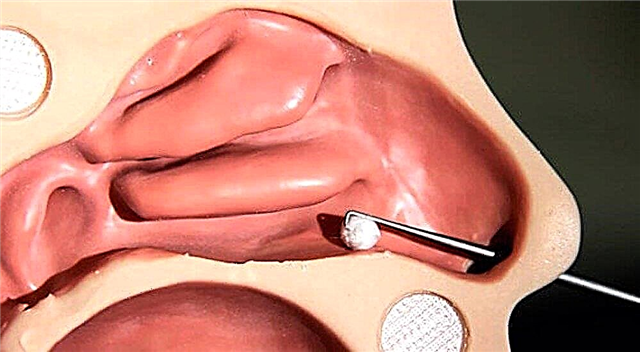Colic is a 6-letter pediatric term meaning “I don’t know what’s wrong with your baby” - it was written in one of the baby care books. Let's figure out what colic is, why the baby is crying and how you can quickly relieve him of pain.
While waiting for the child, a young mother draws in her imagination a lovely picture - the long-awaited baby is sleeping sweetly in the crib, wrapped in love and a warm blanket. But the charm of the moment quickly disappears when the newborn does not behave as it was imagined, but screams without ceasing for several hours in a row. One of the reasons for constant crying can be colic, which is a real challenge for parents.

Why is the baby crying
Crying is the only form of communication available to a newborn. By uttering a cry, the baby tells the world that he is hungry, cold, or tired of lying in one position. Such crying is easy to calm down, you just need to feed or shake it. But it happens that the usual measures do not help in any way, the child continues to scream and sob hysterically in the absence of obvious problems. In this case, crying is a signal for help, because the baby is tormented by colic.
Colic affects most babies under the age of 3-4 months.
Hearing this word, an inexperienced mother may be frightened - this term can be used to designate any condition associated with something incomprehensible and threatening. To understand what colic is and how it affects a baby, you need to know the physiological characteristics of the infant's body. In pediatric practice, the term is not a diagnosis, but rather a collective name for physiological disorders that are accompanied by pain and discomfort.
What causes colic
Colic is a common name that pediatricians and neonatologists use to refer to pain syndrome caused by the digestive tract in infants. In the first months of life, the child adapts to the environment, gets used to food and external stimuli. In the neonatal period, physiological systems adapt, reflexes are replaced by more complex forms of activity, which does not always go smoothly.
There are several reasons for colic:
- improper digestion of food (active or reduced peristalsis of the gastrointestinal tract);
- swallowing air while feeding;
- adaptation of the nervous system;
- incorrect body position.
The result is bloating, frequent regurgitation, and abdominal cramping that can cause pain in the newborn.

How to help with colic
The continuous crying of the baby is not good for anyone - the child is physically tired, and the tired mother is experiencing psychological stress. The newborn feels the mother's nervousness, experiences even greater discomfort, and now sleepless days and nights merge into a continuous veil of irritation and despondency. To break this vicious circle, you need to help your child cope with colic.
It is quite easy to understand that colic is caused by problems with digestion - it is obvious and instantly helped by either drugs that suppress gas formation, or a gas outlet tube, after removing the gas, the baby quickly calms down. To remove gases, you can give special medicines that suppress bloating, or use proven means:
- after feeding, hold the baby upright and pat on the back until the air leaves;
- place a warm heating pad, diaper or bottle on your tummy;
- drink a decoction of dill seeds;
- change the position of the child in the crib (put a pillow under your head or replace the mattress with a softer or harder one);
- use a gas tube;
- get a massage.
If belching and regurgitation occurs after each feed, the mom will have to change her diet. Avoid foods containing substances that pass into breast milk and contribute to gas production.
- How to massage the tummy of a newborn baby with severe colic. Video
- Dill water for colic for newborns: a recipe for cooking at home, the benefits and how to give it to the baby
- How and in what cases to use a gas pipe

Life hacks of an experienced mom
Experienced mom Mila Okhina's comment:
Dr. Harvey Karp believes that sucking (including nipples), swaddling, lying (not sleeping!) On the stomach or on the side, motion sickness and white noise help the baby. Here, like everything else in children, everything is individual, someone loves a sling, someone hates him, but I had to accustom the child to the nipple, which I condemned so much, and he felt much better.
Another important thing that not every mother comes to mind is the child's sleep. When a child has colic, you find yourself in a vicious circle - he cannot sleep, because he feels bad, and then he is overworked, and he becomes sick from this, and he again cannot sleep. Very often it becomes easier for everyone, if, as you like, without hesitation in the means, let him sleep.
When I realized that this was just the case for my child, we began to live by the clock, and I put him to sleep according to the norms of wakefulness - sometimes I had to swing, sometimes walk for hours several times a day, but sometimes it was enough to swaddle and give out a pacifier - and the intensity of colic in the eyes began to subside.
Well, and most importantly, according to statistics, colic lasts about 12 weeks. Unfortunately, I cannot promise that at exactly 3 months of the baby his screams will stop at the click, but the very realization that I only need to hold out for a limited amount of time, and then it will become easier, saved me a lot on dark, sleepless nights with the kitchen hood turned on for the noise. ...
- Colic in infants: symptoms and how to relieve a baby from pain
- Truth and myths: scientists have found out what foods in the diet of a nursing mother cause colic in a child
- Myths about infant colic



